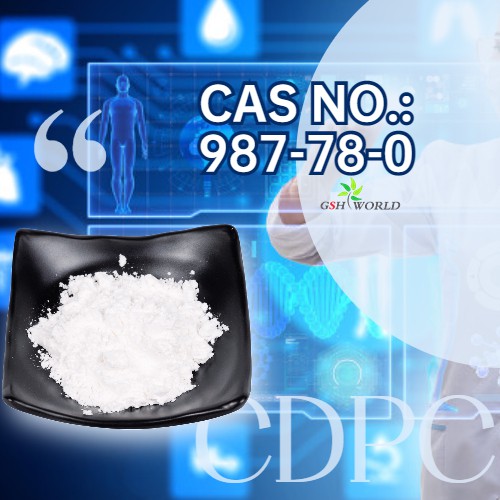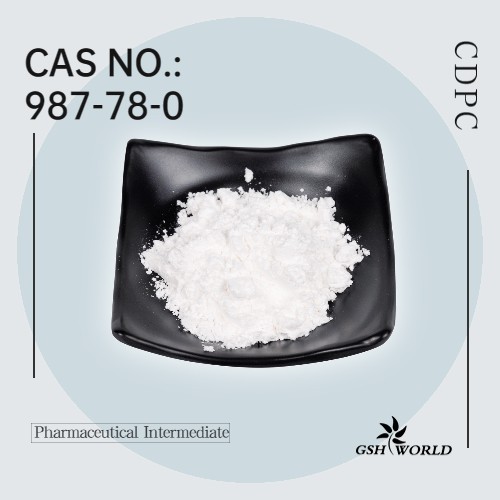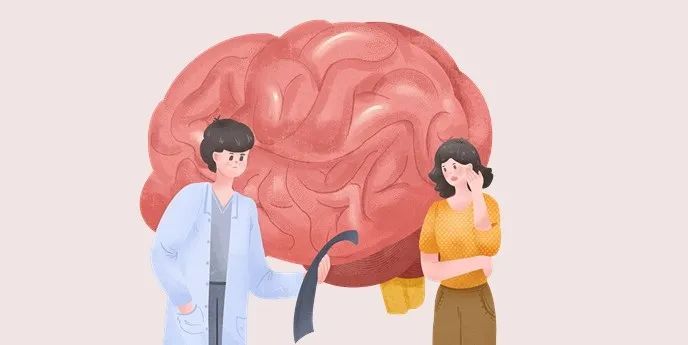The effective drug mechanism of citicoline – brain metabolic activator in the treatment of craniocerebrain injury and nervous system sequelae is explained
Citicoline, also known as nicoline, citicoline, or cyticholine, is a relatively inexpensive generic drug used primarily as a brain metabolic activator.
This drug can promote the breathing of brain cells, thereby improving brain function, and it can also enhance the function of the ascending reticular activation system, helping to promote the patient’s awakening, and reduce cerebrovascular resistance.
The main indications for citicoline include:
- Disturbance of consciousness after acute craniocerebral trauma and brain surgery.
- Consciousness disorder in acute stage of cerebral infarction.
- Treatment of ischemic cerebrovascular disease, vascular dementia, tinnitus and neurogenic deafness.
- Treatment of coma and consciousness disturbance caused by acute poisoning, infection and massive cerebral infarction.
- Recovery of upper and lower limb function in patients with stroke sequelae and hemiplegia after stroke is especially suitable for use within one year after the onset of stroke and in combination with drugs that promote brain metabolism and brain circulation, among which the effect of lower limb hemiplegia is better.
Citicoline can also be used with proteinolytic enzyme inhibitors for the treatment of acute pancreatitis, chronic recurrent pancreatitis during acute attack and postoperative acute pancreatitis.

mechanism of action of citicoline drugs is mainly reflected in following aspects:
(1) Citicoline is a brain metabolic activator
It can promote brain cell respiration, improve brain function, and enhance the function of the ascending reticular activation system, thus promoting awakening and reducing cerebrovascular resistance.
It can also effectively enhance the reticular structure of the brain stem, and has a better therapeutic effect on muscle paralysis caused by brain injury, and can effectively treat Parkinson’s syndrome and alleviate motor dysfunction.
(2) Citicoline has anti-cholinesterase effect
It can inhibit the breakdown of the neurotransmitter acetylcholine, promote its continuous role, and improve the excitability of the nervous system.
By regulating the opening state of ion channels, it can also affect nerve signal transmission, thereby stabilizing the structure and function of nerve cell membranes.
(3) Citicoline can dilate vascular smooth muscle
Reduce peripheral resistance and increase cerebral blood flow, thereby improving blood circulation.
It can also improve the utilization of oxygen and glucose in brain tissue, promote the activity of key enzymes in the process of energy synthesis, and thus improve brain energy metabolism.
In clinical practice, citicoline is mainly used in the treatment of acute craniocerebral trauma, brain surgery after the disturbance of consciousness, as well as the acute stage of cerebral infarction.
It can also used in the treatment of ischemic cerebrovascular disease, vascular dementia, tinnitus and neurological deafness.
Citicoline also contributes to the recovery of upper and lower limb function in stroke sequelae and hemiplegia patients after stroke.

Methods of citicoline use and precautions
1. How to use:
Citicoline generally taken orally as a tablet, and the specific dosage and course of treatment should follow the doctor’s instructions.
Usually, the oral dose for adults is 0.2 grams (that is, 1 tablet), 3 times a day, with warm water.
Be sure to follow the dosage and medication time prescribed by the doctor, do not arbitrarily increase or decrease the dosage or change the medication time.
2. Note:
- Before using citicoline, the doctor should informed in detail of the personal disease history, allergy history and other drugs currently being used to rule out drug contraindications.
- Patients who are allergic to citicoline or its components should condone this drug. Patients with allergies should closely observe their own reactions during medication. If allergic reactions occur (such as rash, itching, dyspnea, etc.), they should immediately stop medication and seek medical attention.
- Pregnant and lactating women should use this drug with caution, as there is no safety data on its use in pregnant and lactating women.
- During the medication period, patients should pay attention to the changes in their symptoms, and regularly return to see the doctor, so that the doctor can adjust the treatment plan according to the condition.

Citicoline drugs have many advantages in treatment
1. Improve brain function:
Citicoline can increase the blood flow to the brain and improve the activity of brain cells, thus effectively improving brain function.
This helps patients regain normal cognition, memory and learning.
2. Promote brain blood circulation:
The drug has the effect of reducing blood viscosity and inhibiting platelet aggregation, which helps promote blood circulation in the brain.
This can help relieve symptoms such as cerebral ischemia and hypoxia, and improve the quality of life of patients.
3. Promote nerve regeneration:
Citicoline can promote the synthesis of acetylcholine, enhance the conduction of central nervous system, and facilitate nerve regeneration.
This has an important therapeutic effect for patients with nervous system damage.
4. Anti-hypoxia and anti-brain damage:
By increasing cerebral blood flow and improving brain metabolism, citicoline can counteract the dysfunction of brain tissue caused by hypoxia.
At the same time, it can also reduce the production of free radicals, inhibit lipid peroxidation, reduce brain edema, and protect brain cells from damage.
5. Wide range of application:
Citicoline is suitable for the treatment of a variety of diseases, including cerebral infarction, stroke, brain trauma and other neurological diseases, as well as ischemic cerebrovascular disease, vascular dementia, tinnitus and neurological deafness.
6. High security:
Adverse reactions to citicoline drugs are relatively rare, and occasionally patients report mild gastrointestinal reactions, but they are usually mild and resolve gradually after discontinuation.
Therefore, the safety of the drug in clinical application is high.



